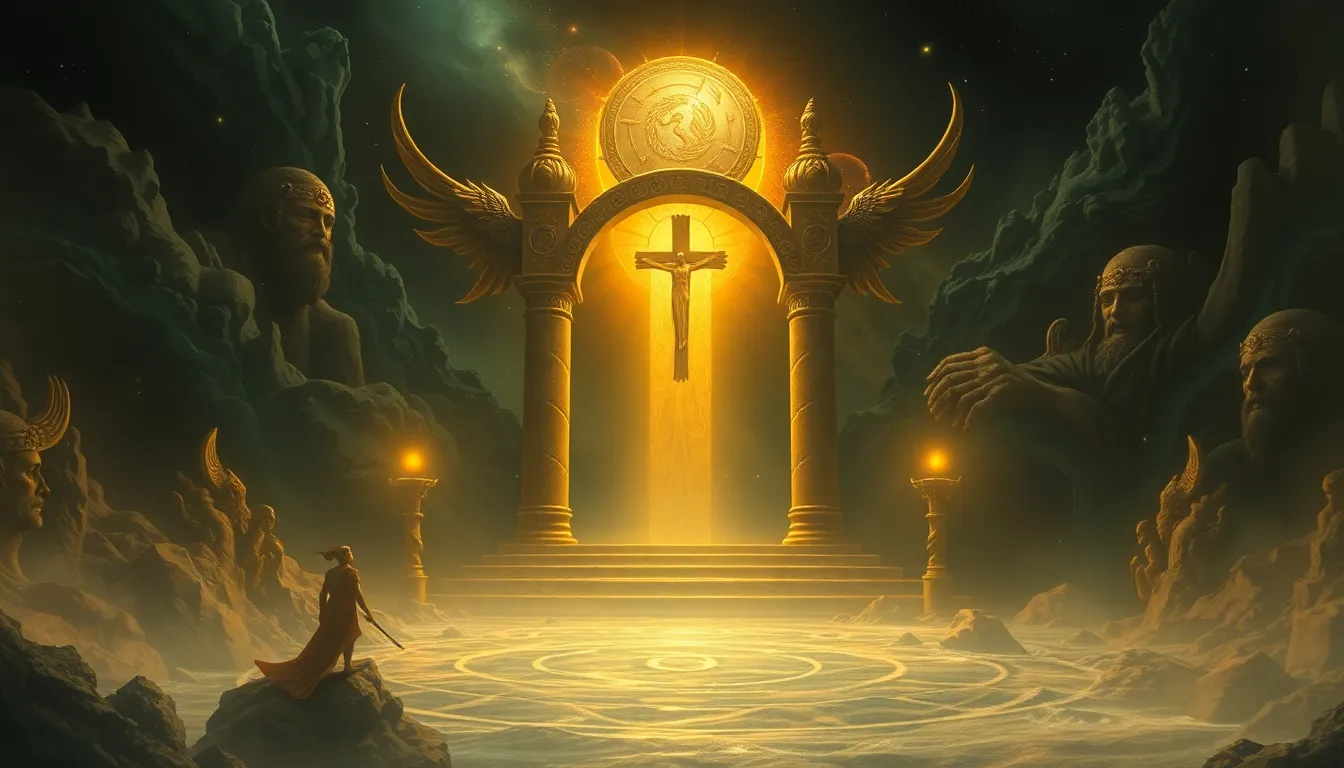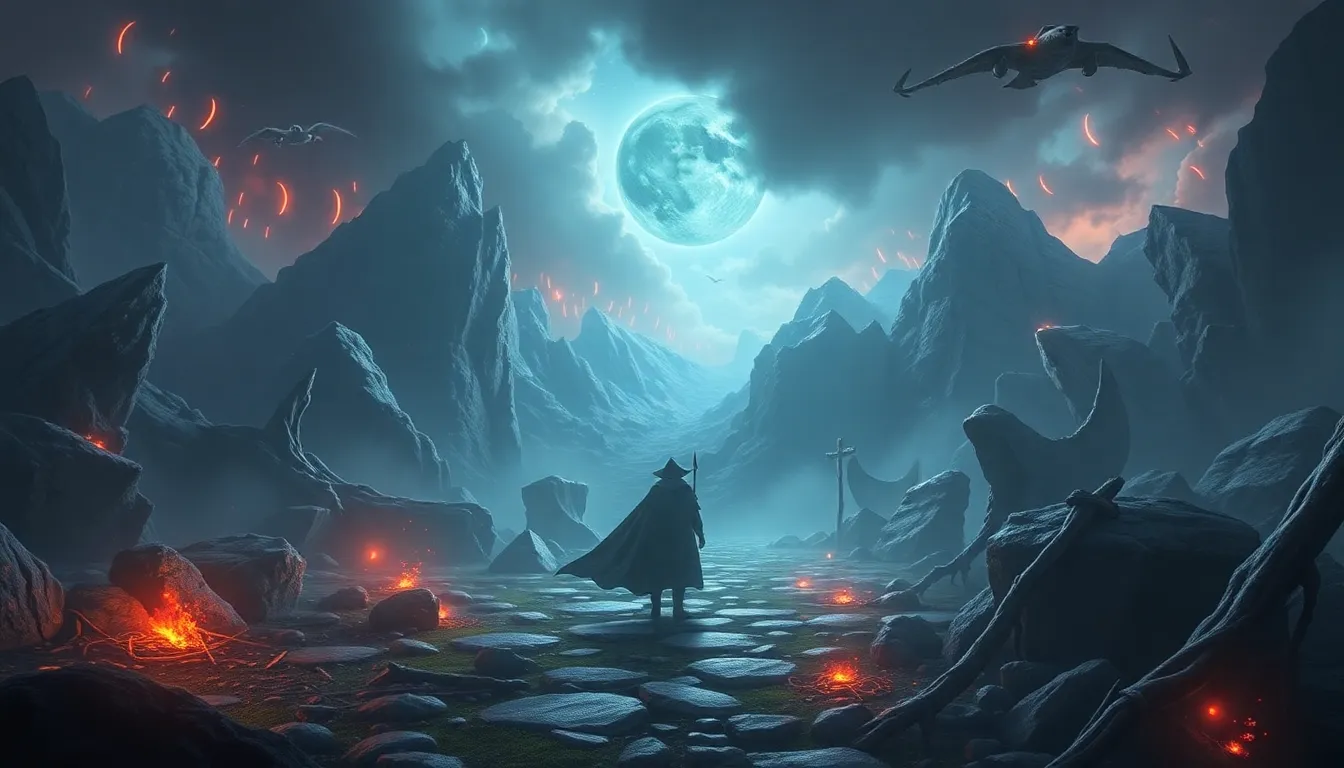The Quest of the Lost Souls: Myths of the Afterlife
Introduction to Afterlife Myths
Afterlife myths are narratives and beliefs that explore what happens to individuals after death. These myths hold significant cultural and spiritual importance across various societies, often providing insight into human fears, hopes, and values. The concept of lost souls is a pervasive theme within these myths, representing the souls of those who may not have found peace or who remain tied to the earthly realm for various reasons. This article delves into the rich tapestry of afterlife myths, focusing particularly on the enigmatic notion of lost souls.
Historical Context of Afterlife Beliefs
Throughout history, civilizations have developed intricate beliefs about the afterlife. Ancient Egyptians, for instance, envisioned a complex journey through the Duat (underworld), where the soul would face trials and be judged by Osiris. The Greeks believed in Hades, a realm where souls resided, with various areas like Elysium for the virtuous and Tartarus for the wicked. Mesopotamians, too, had their views, seeing the afterlife as a shadowy continuation of life on earth.
As societies evolved, so did their beliefs about the afterlife. The transition from polytheistic to monotheistic religions introduced new concepts of heaven, hell, and the fate of souls, influencing the narratives surrounding lost souls throughout different historical periods.
Cultural Perspectives on Lost Souls
Lost souls manifest differently across major world religions:
- Christianity: Lost souls are often interpreted as those who have strayed from God, facing eternal separation or seeking redemption.
- Hinduism: The concept of lost souls can be linked to the cycle of samsara, where souls are reborn until they achieve moksha (liberation).
- Buddhism: Lost souls may be seen as beings trapped in the cycle of rebirth, influenced by their karma and attachment to the material world.
These perspectives reveal a complex web of beliefs about morality, redemption, and the journey of the soul beyond death, highlighting how different cultures interpret the essence of lost souls.
The Role of Mythology in Understanding Death
Myths serve as vital coping mechanisms for humanity’s inherent fear of death. They provide narratives that help individuals comprehend the unknown and navigate their emotional responses to loss. For instance, the ancient Egyptian myth of the weighing of the heart illustrates how one’s life choices determine their fate in the afterlife, offering a moral framework for understanding death.
Case studies of specific myths, like the Greek story of Orpheus, who ventured into the underworld to retrieve his beloved Eurydice, further emphasize the theme of connection and the quest for closure in the face of death.
Symbolism and Imagery in Afterlife Myths
Lost souls often evoke powerful symbols that resonate through various cultures:
- Ghosts: Representations of souls that linger on earth, often depicted in folklore as seeking resolution.
- Spirits: Ethereal beings that may guide or torment, depending on their past lives and experiences.
- Gates to the afterlife: Structures like the River Styx in Greek mythology symbolize the transition from life to death.
The artistic representations of these symbols can be found in literature, visual arts, and folklore, illustrating how deeply ingrained these myths are in human culture.
The Influence of Folklore and Legends
Folklore plays a crucial role in shaping cultural beliefs about lost souls. Legends such as the tale of the wandering ghost highlight the idea of souls that have unfinished business on earth, often leading to cautionary tales intended to warn the living. These narratives serve to reinforce societal norms and values regarding death and the treatment of the deceased.
The impact of such folklore is evident in various practices surrounding death, including rituals intended to honor the dead and guide their souls to peace.
Psychological Perspectives on Afterlife Beliefs
The fascination with the afterlife and lost souls may be rooted in psychological needs for meaning and continuity beyond death. Humans grapple with existential questions, and afterlife myths can provide comfort, reassurance, and a sense of identity. They allow individuals and communities to construct meaning around mortality, shaping both individual beliefs and collective identities.
Such myths can also influence how people cope with grief and loss, offering narratives that promote healing and hope.
Modern Interpretations and Adaptations
In contemporary society, media plays a pivotal role in shaping perceptions of lost souls and afterlife myths. Films, books, and video games often explore themes of the afterlife, presenting a range of interpretations that resonate with modern audiences. Popular media often reimagines traditional myths, blending them with contemporary issues such as mental health, existentialism, and social justice.
This shift reflects a broader evolution in societal beliefs about death, moving from fear and taboo to curiosity and exploration.
The Quest for Meaning in the Afterlife
Philosophically, afterlife myths prompt profound inquiries about purpose and the nature of existence. They encourage individuals to reflect on their lives and the legacies they leave behind. Through these narratives, people seek not only to understand mortality but also to find comfort in the notion that life continues in some form beyond death.
Myths surrounding lost souls often provide frameworks through which individuals can explore their own beliefs about life, death, and what may lie beyond.
Conclusion: The Enduring Legacy of Afterlife Myths
The concept of lost souls continues to resonate in contemporary society, reflecting the timeless human quest to understand the mysteries of life and death. As societies evolve, so too do the narratives surrounding the afterlife, but the core questions remain unchanged. Myths serve as essential tools for navigating the complexities of existence, offering comfort and a shared sense of understanding about what it means to be human in the face of mortality.



